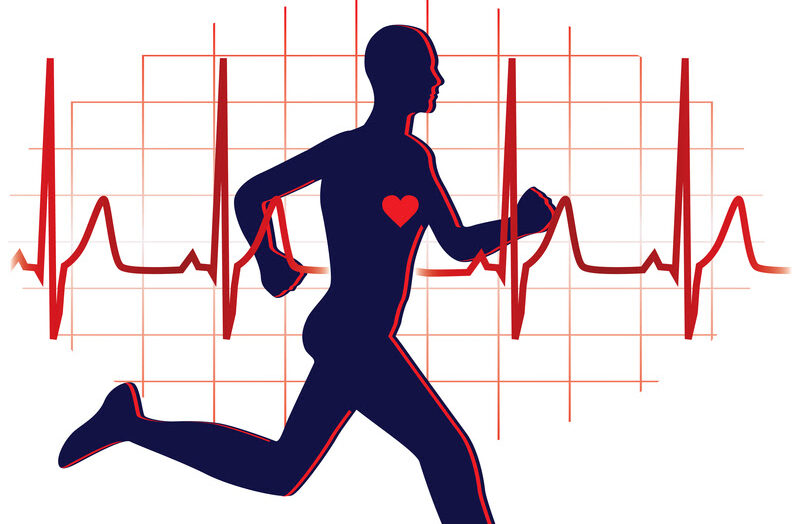Athlete’S Heart

Are you an athlete? What kind of athlete are you?
As an athlete, the type of training you do can affect your heart. How? It’s simple! Your body needs more oxygen when you exercise. To meet this higher demand, your heart’s left ventricle has to pump more blood and at a higher pressure than normal. (Remember, your left ventricle is the chamber that pumps oxygen-rich blood out to your body.)
After meeting your body’s need for more blood and oxygen during intense endurance training or strength training, your left ventricle starts to get bigger and develop thicker heart muscle over time. Think of any other muscle… the harder you work it, the bigger and stronger it gets! This is called “Athlete’s Heart”.
Also of interest, when you’re not working out, your heart doesn’t have to pump as much blood. It can pump what you need at a lower heart rate. This is why people with Athlete’s heart syndrome have a heart rate that’s lower than a non-athlete’s heart rate at rest!
Athlete’s heart is not a medical condition. It merely describes the normal changes that occur in the hearts of individuals who participate in intense athletic training. Such changes are subtle. They include small increases in size of the pumping chamber (ventricle) and the filling chamber (atrium), as well as proportionate small increases in the thickness of the heart muscle.
If the thickness of your heart muscle has increased, you may get an abnormal reading on an electrocardiogram stating “Left Ventricular Hypertrophy” (or LVH for short). Your doctor may refer you to get an echocardiogram to confirm those results. In this case, it is important to talk to your doctor about the athletic activities you do. This is because there are other, more serious heart diseases that can also increase the thickness of your heart muscle, and it’s important to distinguish one from the other.
Hypertrophic Cardiomyopathy (HCM) is a genetic disease that increases the thickness of your heart muscle. It is the most common cause of sudden cardiac death in athletes, This is why it is important to know the difference between HCM and Athlete’s heart, because one is serious and the other one isn’t.
Hypertrophic cardiomyopathy
- Can cause sudden cardiac deathin athletes.
- The amount of space inside of your left ventricle gets smaller.
- Left ventricle wall is thicker than in people with Athlete’s heart.
Athlete’s heart
- Doesn’t cause sudden cardiac death in athletes.
- The amount of space inside of your left ventricle gets bigger.
- Left ventricle wall is thick, but not as thick as in people with hypertrophic cardiomyopathy.
So, in conclusion, please do not stop exercising! Athlete’s heart is not dangerous and exercise is good for your heart! A study of high-level athletes found that their endurance training didn’t cause heart issues in the future. However, if you do experience any chest pain, shortness of breath, fainting, or palpitations, please do talk to your doctor as it may be a symptom of a more serious heart disease such as HCM.
